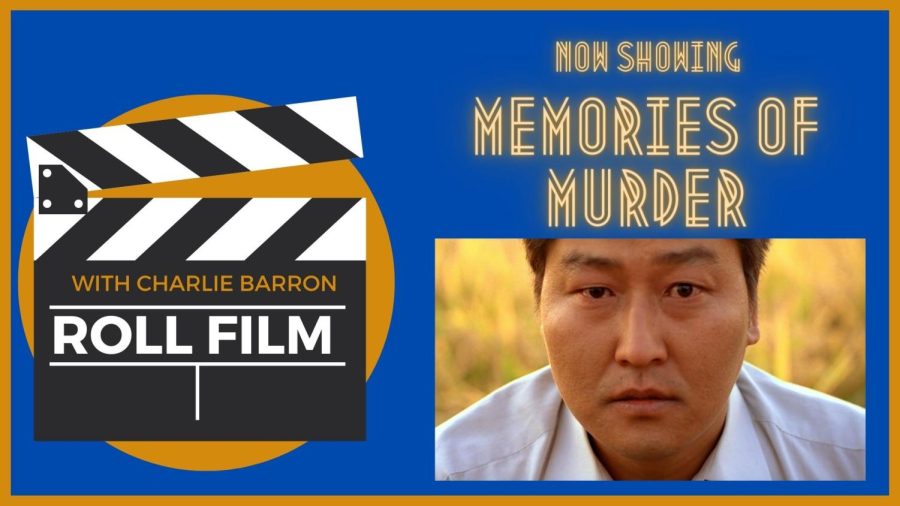Roll Film with Memories of Murder
December 19, 2022
Before Bong Joon-Ho made history with the first foreign language Best Picture winner at the Oscars with Parasite in 2019, he was still known for his amazing hot streak of films. The South Korean filmmaker has gone on to make some of the most successful international films of the 21st century, including the hit action-sci-fi Snowpiercer and the Netflix hit Okja. He has had a very successful streak of acclaim, which all started with his 2003 crime-thriller Memories of Murder.
Set in the mid-80s in a small province of South Korea, the story follows a trio of detectives as they attempt to unravel the identity of a serial rapist/murderer, but are held back due to the circumstances they must work in. Bong based the plot on the real first recorded case of serial murders in South Korea, which took places between 1986 and 1991. A crucial part of the case that interested Bong was the fact that it was never solved, and remained a mystery far after the release of the film until DNA evidence found in 2019 finally placed the killer. Nevertheless, the ambiguity of the killer’s identity is a key fact of the film and plays into the messages that Bong places in almost all of his films.
Like the majority of his filmography, Bong’s underlying meaning of the story is about the class disparity in South Korea. While some of his other films like Parasite and Snowpiercer are interested in showing the keen divide between the financially wealthy and the working class, Memories of Murder is entirely set in the working class province in which the murders took place. Bong’s exploration of the struggling working class is the secret ingredient to an otherwise straightforward detective narrative.
Just as Martin Scorsese has his guy in Robert De Niro and Jordan Peele has his guy in Daniel Kaluuya, Bong Joon-Ho has his guy in Song Kang-Ho. Most commonly known for his role as the poor family patriarch Kim Ki-Taek in Parasite, Song’s performance as one of the three detectives is one the central successes of Memories of Muder. Song’s character is accompanied by another small town detective who beats perps rather than question them, and the two of them are as wicked as main characters can be. They have almost no resources to conduct thorough police reporting, so they use near-tortuous methods to get answers out of suspects that they don’t even fully believe have a shade of guilt.
This process of investigation is joined by another detective from the large city of Seoul, Seo Tae-Yoon played by Kim Sang-kyung, a much younger and more professional detective. Detective Seo is disgusted by the methods used by the other detectives, until the desperation of the case starts getting to him the worst. As their investigation keeps leading down different paths with hopeless ends, Bong’s emotional climax involves the ultimate failure that these men face due to their financial circumstances. Even though the proof is at the tip of their fingertips, they do not have the means to finish the investigation.
The film’s ending is most certainly the most poignant and memorable scene, which involves Song’s character in a flash forward to the then present, 2003, after he has long since quit his detective work. One of his more unorthodox methods of investigation frequently used earlier in the film is a long stare into a suspect’s eyes, as he believes the eyes can’t lie to him. In this flash forward, he visits the site of the first murder, where he is greeted by a young girl who claims that she recently saw another man visit the site because he remembered doing something important there long ago. The film then ends with only Song-Kang-ho, as he wallows in his own failure that the killer was never caught, until he then looks directly into the camera as the film fades out. Bong intended this as a look directly at the killer in the audience, as he knew he would’ve ended up watching the film.
Memories of Murder leaves its audience with a harrowing feeling, as they are left in the same hopeless despair that the detectives are left with in the film. Bong has a unique ability as a director, which is also displayed in Parasite, in which he can end his film on an utterly hopeless note, but still leave the audience exhilarated with just how entertaining and well made his films are.



